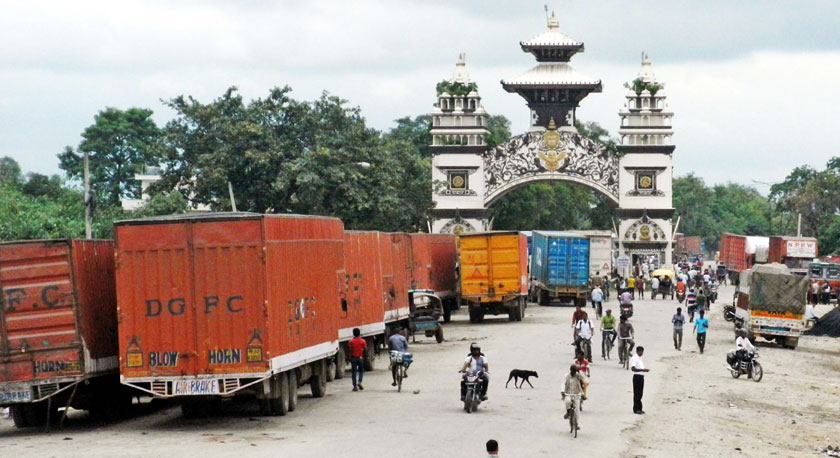Upheaval, blockade push Nepal's trade deficit to new record
KATHMANDU: Nepal's trade deficit grew to a record $6.5 billion in the financial year to mid-July, an increase of 2 percent, as political upheaval, a blockade of its border with India and the lack of industrial development all weighed on foreign trade.
Exports fell by 17.8 percent to $655.3 million while imports fell* by 0.1 percent to $7.2 billion in the year, data from the central Nepal Rastra Bank (NRB) showed, making grim reading for the Himalayan nation as it tries to recover from two earthquakes last year that killed 9,000 people and caused extensive damage.
Landlocked Nepal depends chiefly on India for transit of overland cargo to third countries.
But movement of goods came to a near halt for five months as trucks were held up at the border due to protests by ethnic minority Madhesis, objecting to a new constitution, that left more than 50 dead before ending in February.
"If the deficit was due to rising imports of capital goods and machinery for productive purposes it would not make much difference," said Shankar Pandey, a member of the Federation of Nepalese Chambers of Commerce and Industry.
"But our trade gap is caused by increasing imports of consumer goods which is alarming," he told Reuters.
Nepal's reliance on imports of raw materials saps the competitiveness of export industries like garments and carpets - making them up to 40 percent more expensive than products from Bangladesh, China or India, say business officials.
Investors have steered clear of the impoverished country, deterred by a lack of market information and revolving door politics that has seen eight changes of government in as many years since the abolition of the monarchy in 2008.
The widening trade deficit also reflects a shift by entrepreneurs from manufacturing to trading that entails fewer business risks and brings higher profits, Commerce Department official Hari Narayan Belbase said.
"There is no entrepreneurship, manufacturing is hit by energy shortages and trade unions," he said.
Exports carry no duty except a nominal service charge.
Traditionally, Nepal has been able to bridge its trade gap with remittances from millions of workers abroad who have helped keep its overall balance of payment in surplus.
Workers' remittances increased by 7.7 percent and stood at $6.2 billion during the year, the central bank said.
"The government is basking in remittances and export promotion is not its priority," said Anup Malla, who exports handmade woollen carpets.
"There is no encouragement to exporters."
(* Reuters inadvertently reported that imports also grew. But official records show imports had fallen. So, this has been corrected on our website.)






